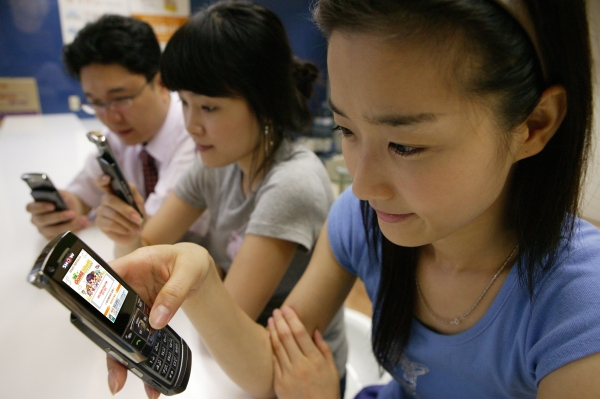3 Articles for 'KTF'
- 2009/06/12 Yet again, no iPhone for Korea (18)
- 2008/08/26 Mugeta: a blatant Mobage knock-off (1)
- 2008/07/29 3G means profit hemorrhage
In the recent WWDC 2009, Apple announced iPhone 3G S and gave the list of countries the phone will be available - Korea wasn't included in the list this time again. Korea is just about the only developed country that doesn't have an iPhone yet. When countries like Guinea-Bissau, Equatorial Guinea, and Qatar are getting their iPhones soon (nothing against those countries, by the way) and yet South Korea, the world's 11th economy, isn't getting one, there's something seriously wrong there.
Including my friend Danny, Korean bloggers are not hesitating to express their disappointments over the no-iPhone news. Both SKT and KTF, the leading carriers of Korea, have been in talks with Apple to introduce iPhone in Korea, for quite a long time. But both companies seemed to have backed out a little bit now, saying they couldn't strike mutually beneficial business deals with Apple. Well, that's just a polite way of saying that Apple demanded too much. But then, given the huge success of iPhone, Apple may actually deserve to demand much. Now carriers have to admit Apple's got the upper hand in the smartphone game.
But it might actually go deeper than that. Out of fear to become "dumb bit pipes", Korean wireless carriers have been working so hard to transform themselves into digital content empires by acquiring content companies and building a tight control over the content value chain. But iPhone is all about getting out of carrier value chain: web browsing on WiFi networks or App Store downloads have nothing to do with carriers. So the fact that the carriers haven't yet fully recouped their massive content investment might be the true reason, or at least part of the reason, why Korea still doesn't have an iPhone yet.
This came on my radar only recently, but there is a Korean mobile game and social network service called "Mugeta", that has copied Japan's popular Mobage service (short for "Mobagetown", or "Mobile Game Town") down to the name itself: "Mugeta" in Korean is short for "Muryo (free) Game Town".
The service is provided by Entaz, a mobile content service provider, through KTF (Korea's #2 carrier). Mugeta began service in April this year, and reached 0.2 million subscribers mark in just four months. To put this in perspective, Mobagetown of Japan has been around since February 2006 and today has 9 million subscribers. So at least in terms of growth, Mugeta is pretty impressive.
Mugeta is free - users get mobile games (there are 58 game titles available now), avatars, mobile homepage (called "phone-py", perhaps after the minihompy), all for free. Mobagetown also used its free content to build up the initial user-base, and when they amassed a big user base, monetization followed.
KTF says over 70% of Mugeta service users are teens (under 20), and female users take up 43%, which is pretty high compared to other mobile content services.
Well, in this age of globalization, a best practices in one country can get copied very quickly in other countries. People may quickly point their fingers to China, as that's an easy one to spot, but StudiVZ shows that Germans know how to copy, too. That said, I seriously wonder if Mugeta has partnered up with DeNA (the provider of Mobagetown) or is paying them royalty. Otherwise, I would be very uncomfortable.
If you are in the US, often the TV ads you most frequently see are those for new cars. Well if you are in Korea, you are almost drowned by the mobile carriers' 3G TV ads. Some are humorous, some dead serious, but all those ads try to send out the single message: Become a member of our 3G service. Like this TV commercial on KTF's 3G service, which is about giving old folks shiny new 3G phones as a gift. (Now they are targeting the old folks? Come on, apparently they are trying to squeeze the last drop out of the market...)
Worse, "marketing budget" for mobile carriers doesn't only mean TV commercial costs. In fact, TV commercials only take up a minor share of their marketing budget. There's subsidies, MNP (mobile number portability) benefits, commissions to be paid out to shops, etc.
As a result, Korean mobile carriers saw profit slide in Q2: SKT spent roughly US$ 880mm in Q2, while KTF spent around US$ 620mm. To put these numbers in perspective, KTF's marketing expenditure was 40% of their whole revenue (not of profit). Both companies saw their stock price go down after the profit announcements.
But as all major carriers spent big money on marketing, the market share among the three carriers turned out to have stayed largely the same. So why bother with marketing? one might ask. Of course if you are from advertising industry, you'd not ask that question, but would hope the carriers will forever stay on their marketing binge.




